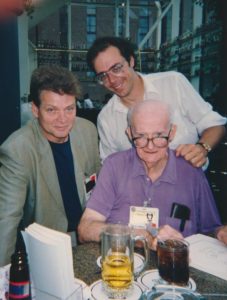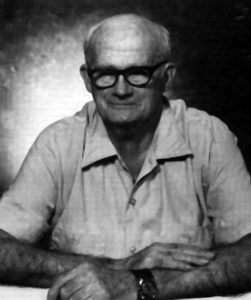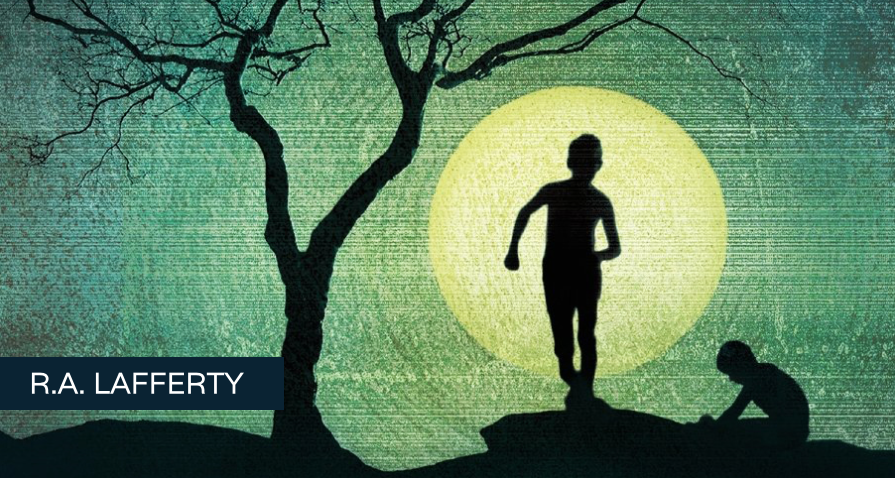A eulogy for one of our most overlooked and most influential writers.
From LOCUS magazine.
R.A. LAFFERTY (1914–2002)
Though my friend Dan Knight was one of his many small press publishers, I only met R.A. Lafferty once, at the 1990 Worldcon. He was an old man. I sat beside him at the bar overlooking the Chicago skyline and told him whatever it is you tell writers whose work you worship, envy, love, imitate, admire, parse, repeat, urge on others and read over and over again.
 He was cordial but more interested in admiring the view through the floor-to-ceiling windows. I remarked that Chicago’s skyline must have changed a lot since he first saw it. He nodded thoughtfully. “I loved it then,” he said, “and I love it now!”
He was cordial but more interested in admiring the view through the floor-to-ceiling windows. I remarked that Chicago’s skyline must have changed a lot since he first saw it. He nodded thoughtfully. “I loved it then,” he said, “and I love it now!”
Then he sort of fell over. He was pretty drunk. He asked if I would help him get to his room, and I did. On the way, he signed a book for my son Gabriel. From the time Gabe was ten we had read Lafferty on vacations, aloud in the car. “The Narrow Valley” was one of Gabe’s favorites. Good, strong stuff for a kid.
For me, reading Lafferty was like looking into Chapman’s Homer. He interested me in SF again, after I had outgrown my early love for Simak and Asimov and Heinlein. What a word slinger: what a richness of idea and image, in Irish-cadenced prose! Lafferty wrote the opposite of the post-Chekhovian modern short story. Show don’t tell? The pleasure’s in the telling.

Rhetoric, in the grand old manner, was at the center of his game. He could go from high-faluting to just plain faluting, and back again, all in a paragraph. Like Charles Mingus, another American original, Lafferty loved the sounds he made; never satified with mere profundity, he was pretty, too. He was our Mingus, I think, elevating us all. And his stories always had a humanist agenda, though I understand he was a political conservative. There’s a wise (or at least watchful) Indian in almost every tale.
And now he’s gone. I believe his day is yet to come; that like Melville, Lafferty will be “discovered,” and his Okla Hannali will take its rightful place as one of the three or four truly great 20th century American novels. But that’s for others to decide.
I can’t say we’ll miss him. We’ve already missed him. He’s been gone for several years, into the fogs of age and illness. SF has moved on, into faster and shallower waters. But what a writer we had among us! He is one of those who made SF a literature to be proud of.
Goodnight, Ray Lafferty. And thanks.
(Thanks for your interest in my work. If you enjoyed this piece, please give a dollar to a homeless person.)

